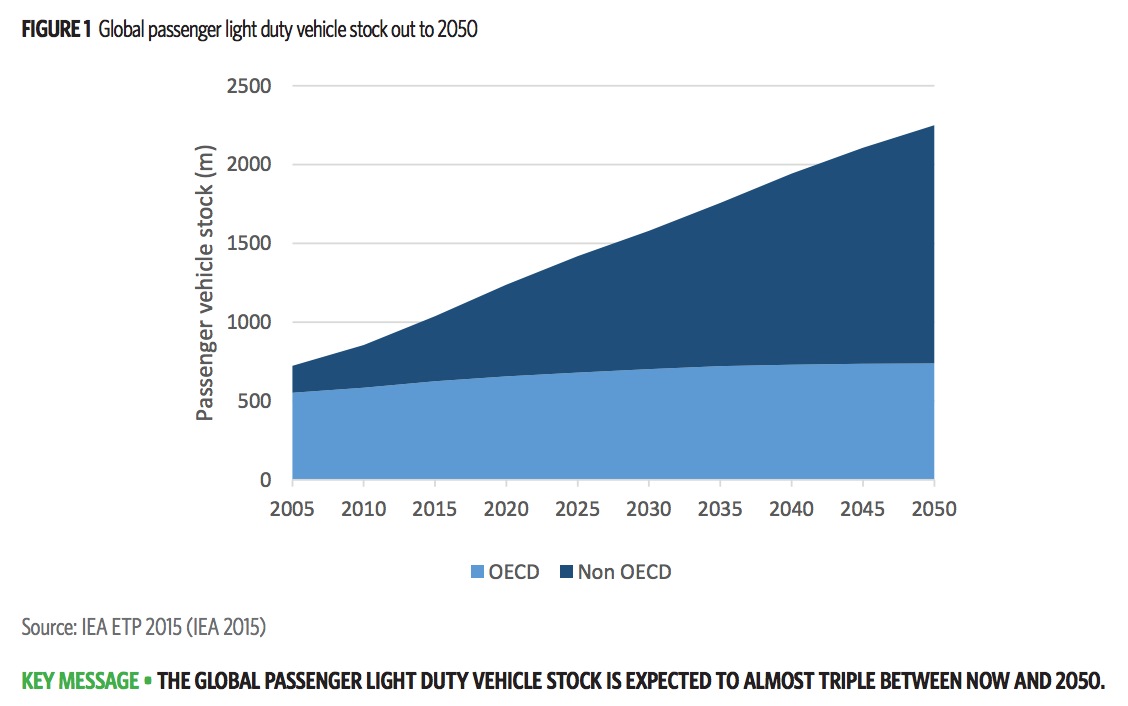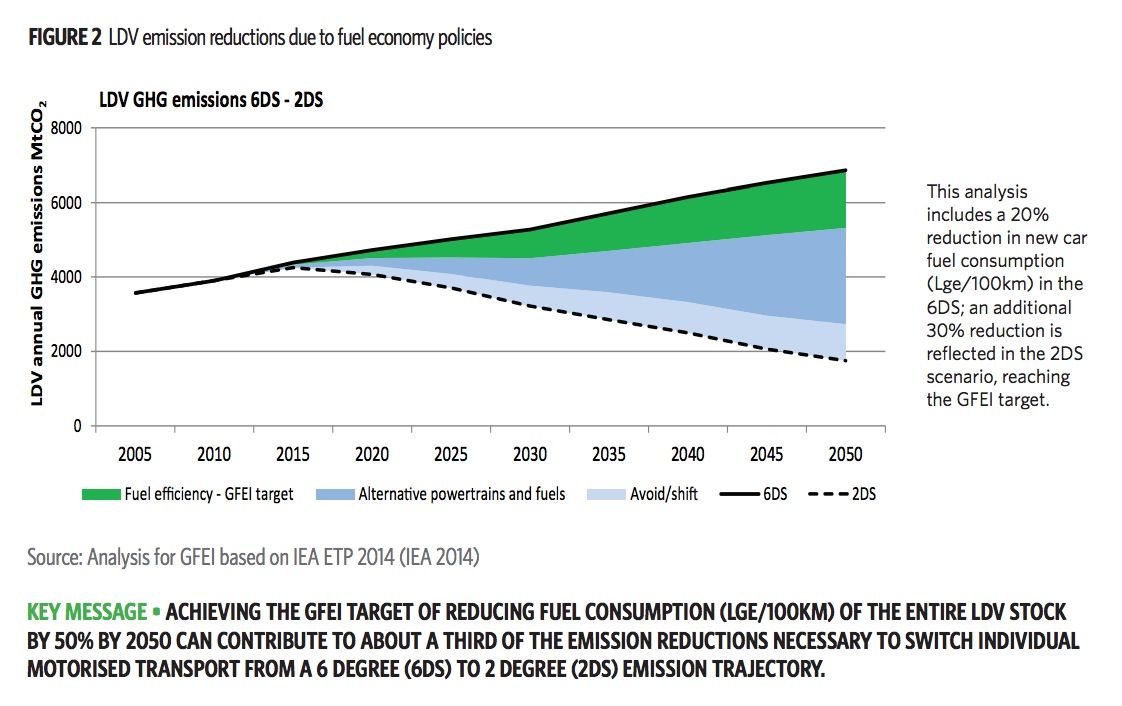GLOBAL FUEL ECONOMY INITIATIVE
Executive Summary
2015 is a key year for action on fuel economy. World leaders are making historic commitments to target sustainable development through new Global Goals for Sustainable Development (SDGs), energy efficiency through the G20, and to tackle climate change through climate negotiations in Paris (COP21).
Vehicles play a vital role in our economic and social prosperity, connecting people, goods and places. However, to prevent dangerous climate change the vehicles of the future must be more efficient and less polluting. The Global Fuel Economy Initiative (GFEI) brings together technical and policy experts to show how to achieve this and to support governments and the private sector to make this happen.
Our work is focused around a series of targets to significantly improve vehicle fuel economy globally. These include a 50% reduction in the average fuel consumption (Lge/100km) of all light duty vehicles in use in 2050, compared to a 2005 baseline. To achieve this, all new cars sold and vans must reach a similar target by 2030.
Our new ‘100 for 50by50’ campaign aims to rapidly expand our impact by extending the number of countries committing to improve fuel economy to one hundred.
This report provides an overview of the state of the world of fuel economy policy today and its potential benefits in the future. By 2050, up to 33 Gt of CO2 and almost $8 trillion could be saved worldwide, if the GFEI target of doubling fuel economy of light duty vehicles was turned into reality. GFEI tracks the achievements so far – between 2005 and 2013 fuel economy of new cars improved by 2% per year globally – and compares them to our target: global fuel economy is improving, but not at the necessary pace.
With the support of GFEI, 27 developing countries are now at various stages of developing fuel economy policies and more will be joining in the future. This report summarises results from the latest events and gives insights in the most relevant fuel economy related work from our partner organizations.
Light duty vehicle fuel economy improvement is o¦ to a good start – with policies already adopted the world is about half the way to the 2030 GFEI target. To finally achieve it, the next three to five years are critical, and GFEI will work hard to do so.
GFEI is also broadening its scope. The coming year will see the partnership getting more engaged in heavy duty vehicle fuel economy policy development, the promotion of electric vehicles and a truly independent vehicle fuel economy and pollutant testing scheme – the “Green NCAP”. 
Download full version (PDF): Fuel Economy State of the World 2016
About the Global Fuel Economy Initiative
www.globalfueleconomy.org
The Global Fuel Economy Initiative (GFEI) is a partnership of the International Energy Agency (IEA), United Nations Environment Programme (UNEP), International Transport Forum of the OECD (ITF), International Council on Clean Transportation (ICCT), Institute for Transportation Studies at UC Davis, and the FIA Foundation, which works to secure real improvements in fuel economy, and the maximum deployment of existing fuel economy technologies in vehicles across the world. The Initiative promotes these objectives through shared analysis, advocacy, and through the Cleaner, More Efficient Vehicles Tool for in-country policy support.
Tags: Efficiency, Emissions, Fuel Economy, GFEI, Global Fuel Economy Initiative







 RSS Feed
RSS Feed